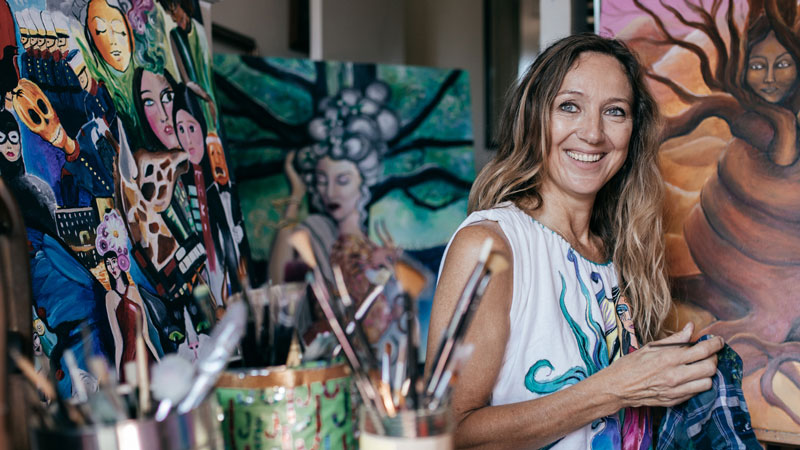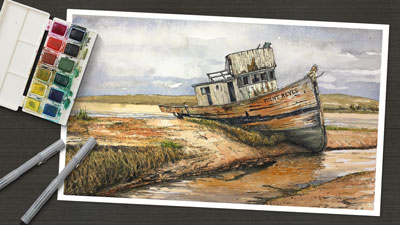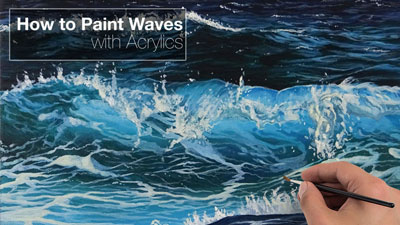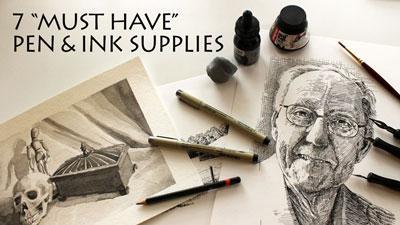
However, in order to reach this level, the individual must possess all, or at least several, characteristics that are frequently observed in successful artists. This means that the individual may be required to acquire some or all of the traits in order to find the success that they desire.
These traits, just like the skills associated with drawing and painting, can be acquired. You don’t have to be born with them – although a few are. We are adaptable. We can be or become anyone that we like.
These characteristics are fairly universal across all of the arts – music, dance, and theatre. They are not confined to the visual arts. In my years working with artists and student-artists, these characteristics are consistent.
Artists Take Risks
One of the most notable characteristics of an artist is risk-taking. Risks are not taken by the artist without some considerable thought however. The risks taken by the artist are calculated and based on experience.
Picasso was a risk taker. He was not afraid to make drastic changes in his art. But the risks he took were well-calculated. They were not reckless, but they weren’t safe by any measure.
If we are to adapt the characteristics of an artist, we must also must be risk-takers. They can be small – we may try a new medium or subject. Or they may be big. The artist finds excitement in risk and takes them often.
Artists Are Not Afraid to Make Mistakes
Fear is one of the most crippling emotions felt by an individual. Fear keeps us physically safe at times, but it also hinders us from experiencing so many wonderful things in life. Think of all things that you have considered doing in life, but didn’t because of fear.
Artist aren’t completely fearless, but they do recognize that mistakes are part of the creative process and they aren’t afraid to make them. Every work that has ever been created is not without at least one flaw.
So many of us stop at the first sign of an imperfection. The frustration grows and the work never gets completed. Artists don’t stop at this moment. They carry through, recognizing that no work with be perfect, nor should it be expected to be. Mistakes are noticed and may be amended, but they are never a reason to give up.
Artists Are Not Afraid Of What Others Think
To a certain extent, all of us are concerned with how others thinks of us. If we said we didn’t, we’d be lying. However, an artist does not fear the opinion of others. In fact, they crave feedback. They want to hear what others think – no matter if it is negative or positive.
They use the feedback as a means for improving their craft and don’t take what is discussed personally. They are able to look at their work as a product, instead of an extension of who they are as a person.
Those that shudder from other people’s thoughts or close themselves off from critique will never grow. Successful artists recognize that their “audience” is important and that their art is not “just for themselves”.
Artists Are Motivated
Perfecting a craft is hard work and takes time. Artists recognize this and do not expect immediate results. They understand that the process of creating may be enjoyable, but it does require hard work.
Artists are motivated to keep pushing forward. They have their eyes on the goal and they put in the hours to reach it. They are incessantly considering how they may improve and are taking action to do so. Over time they develop confidence in their work.
Artists recognize that there is no “magic bullet” or shortcut. If they are to be the artist that they desire to be, they must be in it for the “long haul”. They must be motivated to stay “on course” long enough to reach their destination.
Artists Are Ambitious
Not only are artists motivated to reach their goals, but they also set them very high. Some goals may never be realized, but this is accepted.
The ambition of the artist is not self-rooted. Instead, it is about the art. The ambition is cultivated from a love of the creative process – not from self promotion. In this way, the ambition of the artist is pure.
Ambition may start slow, but it grows over time, as works are created – as possibilities present themselves.
Artists Are Observant
Over time, artists begin to see the world differently. They notice things that are often overlooked by others. They may find joy in things that others find mundane. As they learn to “see”, in order to draw, their perception of the visual world changes.
Shadows, light, colors, and lines become the filter in which the world is viewed. Objects are analyzed and are no longer taken for granted.
Because of this heightened observation, they may also notice changes in how they perceive other people, relationships, and other aspects of life. They see people in their life in a different light and notice aspects about them that may have been overlooked previously.
Artists Are Original
Artists do not always come up with original ideas, but they learn to present them in original ways. They may borrow from others, but present ideas or subjects in new ways. This differentiates artists from “craftsmen”. In this way, artists are innovators.
Because they are innovators, artists are also problem solvers. Throughout the creative process, challenges present themselves. The artist is able to adapt and create original solutions, which result in a unique product.
The artist does not always accept standard approaches, although these may be best. Instead, they are open to new approaches and techniques and experiment frequently to discover what works for their vision.
What’s Missing?
We make the assumption that skill makes an artist. This simply isn’t the case. Skill is often the result of an individual that possesses (or acquires) these characteristics – no matter what the craft. There are artists all over the world at vastly different skill levels. Although their skills are at different levels, they are all artists.
Skill, in any field, can be learned and developed by anyone. It takes hard work and dedication and it isn’t easy. But it is accomplished by having the right mindset and by developing the characteristics of an artist.
If so, join over 36,000 others that receive our newsletter with new drawing and painting lessons. Plus, check out three of our course videos and ebooks for free.
Lesson Discussion
Comments are closed.






Coming from a scientific background, I find it is easier to try new things and risk mistakes if I think of it as an “experiment”. Then, mistakes are anticipated, revisions expected, and new avenues to be explored are seen as exciting .
I find your comments above very insightful and true. I never thought I could accomplish anything in life apart from having a family. But along the way I learned to sew clothing to the extent that I could make wedding attire and suits. Also I could cook and bake very well. Then I also became a qualified florist with my own business. Finally I learned to paint in oils which I was told at school was not possible. My art teacher said I was hopeless. So it took all the sting out of me and I gave up. Now I have been painting over ten years and love it. I am also learning watercolors and I also have my own students. So anything can be accomplished if we do not give up.
So proud of you! I’ve also let the “ you cannot do that” stand in my way for years.. Finally I’ve brokered free of that statement! Thank you for your story! Tomi
It great that you elaborated on the characteristics of a good artist. My favorite part is when you said that they take criticisms or feedbacks well to improve more. Since we plan to hire an artist for our wedding, we need to make sure that they have this kind of quality because there are some people that could be tactless. I don’t want the artist to start giving an attitude if a client was not careful enough to tell their feedback. My mom can actually be like that at times, and I don’t want any issues during my special day. Thanks!
ART IS ANY THING THAT MAKES TO PLACE HE SENSE